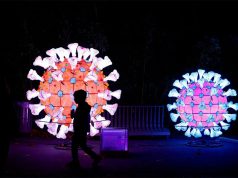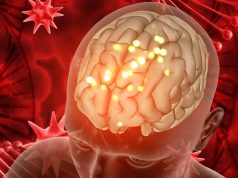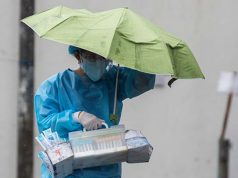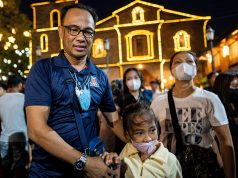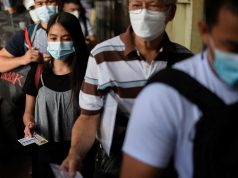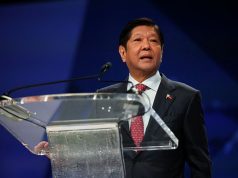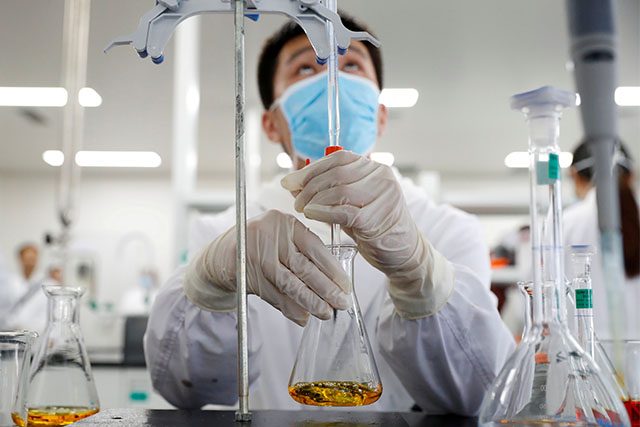
The government was reminded to be wary of Sinovac Biotech‘s coronavirus vaccine after Secretary Carlito Galvez Jr. announced that negotiations are being done to potentially procure up to 50 million dosages.
The chief implementer of the National Task Force Against COVID-19 on Wednesday said that the national government is already looking to sources dosages of CoronaVac, the vaccine developed by the Chinese pharmaceutical firm.
“Tinitignan po natin, unang-una doon sa China, Sinovac, isa po ito sa mga sources natin na more or less 20 to 50 million doses ang kukunin natin doon,” he said, as quoted in a televised briefing.
In addition, the country is also threshing out agreements on vaccines being developed by the United Kingdom, India and Australia.
Sinovac previously submitted its applications to the Philippines for conducting Phase III clinical trials of its COVID-19 vaccine in the country.
As of November 11, it has hurdled the preliminary review of the vaccine expert panel chaired by the Department of Science and Technology and is seeking approval from the ethics board and the local Food and Drug Administration.
Following the announcement, some Filipinos on social media expressed their wariness to the Chinese-developed vaccine since recent reports have not yielded much confidence in its efficacy so far.
“Why China? Not even proven to be 95% effective. And no one knows if human trials are even valid as they do not share any scientific info. Well, as long as they give it to their supermajority and trolls, then why the hell not,” a Facebook user wrote in response to Galvez’s announcement.
“We will go for Pfizer/Moderna/AstraZeneca. We will not go for Chinese vaccines. Kahit kami pa ang magbayad, basta safe lang kami,” another online user said, referencing other COVID-19 vaccines by the United States and the United Kingdom.
“No thanks on Sinovac. It’s made from inactivated SARS-Cov2 virus—the only info China disclosed about it. No mention of efficacy in trials at all,” a social media user from Twitter said.
Another Twitter user called the government’s decision a “threat to public safety.”
“It has also lower levels of protective antibodies in the bloodstream compared with those of Moderna and Pfizer,” the online user said.
Concerns
Earlier this month, BBC News noted that Brazil, one of the hardest hit by the virus, halted the clinical trial conducted by Sinovac after a “severe adverse incident” wherein a clinical trial volunteer died.
Sinovac’s Brazilian partner said that the trial’s suspension was related to a death, but insisted that it was not linked to the CoronaVac.
São Paulo State Health Secretary Jean Gorinchteyn confirmed that the death was an “external event” unrelated to the vaccine.
Recently, findings of its early clinical trials were published which were described by reports as “mixed.”
The Washington Post said that the CoronaVac “generated lower levels of protective antibodies in the bloodstream compared with those arising in recovered coronavirus patients.”
“In comparison, Moderna and Pfizer, which have separate experimental vaccines, had reported antibody levels on par with or higher than those produced in recovered coronavirus patients. These early results put Sinovac on the back foot to prove its vaccine is effective in ongoing Phase 3 trials,” its report noted.
It also quoted an associate dean for clinical research from the University of Colorado who said that the information about CoronaVac’s antibody level was an area of “concern.”
“It’s an important point here, in terms of comparing this vaccine to, for instance, the Moderna and Pfizer vaccines,” Thomas Campbell said.
A vaccinologist and a professor at the Mayo Clinic from Rochester also echoed the same sentiment in a different report.
“I’d be concerned … that [CoronaVac] seemed to induce lower antibody levels than what we’ve seen with other vaccines and lower than what you see in most people who have had disease and recovered,” Dr. Gregory Poland said to the National Public Radio.
A spokesperson from Sinovac said that it cannot immediately release its own preliminary Phase III efficacy rate as there have not been enough COVID-19 cases in its study population.
“For Phase 3 preliminary analysis of results, we need to accumulate a certain number of cases for the data analysts to carry out their analysis,” the spokesperson said to Washington Post.
“We don’t have this data yet so we can’t yet reply,” the official added.




